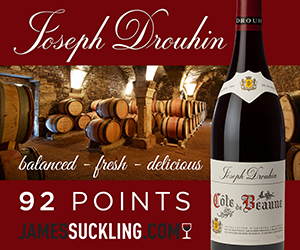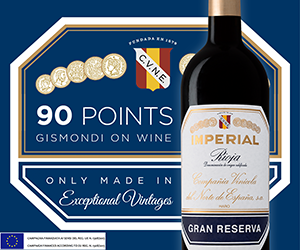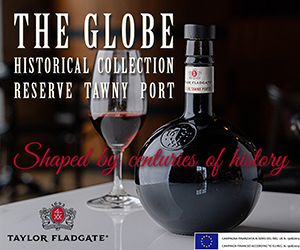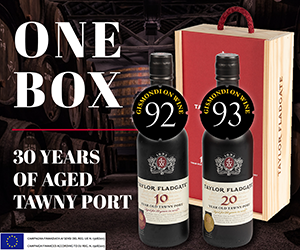Tuesday 31 January 2012 |
| 2:00pm |
|
Registration open at the Hotel Grand Chancellor (venue of the 8th ICCS) |
| 3:00 - 4:00pm |
|
Buses transfer delegates from Hotel Grand Chancellor to MONA |
| 3:30 - 6:00pm |
|
Exclusive viewing of the Museum of Old & New Art (MONA) galleries for ICCS delegates |
| 6:00pm |
|
Welcome Function. Tasmanian wines and canapés served at Moorilla Winery, adjacent to MONA. |
| 7:30-8:30pm |
|
Buses return delegates to Hotel Grand Chancellor |
|
|
|
Wednesday 1 February 2012 |
| 8:00am |
|
Registration open at the Hotel Grand Chancellor (venue of the 8th ICCS) |
9:00am |
|
Opening session of the 8th ICCS |
|
|
Symposium welcome |
|
|
Andrew Hood, Chair of the 8th ICCS Planning Committee |
|
|
Symposium keynote: What's hot about cool climate? |
|
|
Jancis Robinson OBE MW |
|
|
Defining cool climate viticulture and winemaking |
|
|
Andrew Pirie AM, Pirie Tasmania |
| 10:30am |
|
Morning tea (trade exhibition and poster display) |
11:00am |
|
Session 2: Managing vineyard variability |
|
|
Applied geomatics - joining the dots between vine physiology, wine quality and remote sensing |
|
|
Andy Reynolds, Brock University, Canada |
|
|
The provenance of Pinot Noir ... at the level of regions, vineyards, vines, bunches and berries |
|
|
Richard Smart, Smart Viticulture |
|
|
Vineyard variability in Marlborough, New Zealand: characterising spatial and temporal changes in fruit composition and juice quality in the vineyard |
|
|
Mike Trought, New Zealand Institute for Plant and Food Research, Marlborough Wine Research Centre |
|
|
|
|
|
Kevin W Ker, Brock University, Canada |
| 12:30pm |
|
Lunch (trade exhibition and poster display) |
1:30pm |
|
Session 3: Making it and tasting it |
|
|
The role of indigenous yeast in the production of cool climate wine styles |
|
|
Michael Brajkovich, Kumeu River Wines, New Zealand |
|
|
|
|
|
Anna L Carew, Tasmanian Institute of Agricultural Research |
|
|
|
|
|
Bob Dambergs, The Australian Wine Research Institute |
|
|
|
|
|
Claire Grose, New Zealand Institute for Plant and Food Research, Marlborough Wine Research Centre |
|
|
|
|
|
Wendy Parr, Lincoln University, New Zealand |
| 3:00pm |
|
Afternoon tea (trade exhibition and poster display) |
3:30pm |
|
Session 4: Sparkling wines - Old World and New World |
|
|
Classical Champagne production and a transition to new styles |
|
|
Pierre-Yves Bournerias, Institut OEnologique de Champagne, France |
|
|
|
|
|
Ed Carr, Accolade Wines |
|
|
|
|
|
Belinda Kemp, Plumpton College, United Kingdom |
|
|
|
|
|
James Turton, Macquarie University |
| Evening |
|
Hobart restaurant showcase (details coming!) |
|
|
|
Thursday 2 February 2012 |
| 8:00am |
|
Registration open |
9:00am |
|
Session 5: Understanding flavour and aroma in cool climate grapes and wine |
|
|
|
|
|
Brian Jordan, Lincoln University, New Zealand |
|
|
|
|
|
Mandy Herbst-Johnstone, University of Auckland, New Zealand |
|
|
|
|
|
Olga Makhotkina, University of Auckland, New Zealand |
|
|
|
|
|
Gerard A Logan, University of Auckland, New Zealand |
|
|
Four chemicals that influence the aroma of New Zealand Pinot Noir wine - ethyl octanoate, ethyl decanoate, phenethyl alcohol and benzaldehyde |
|
|
Elizabeth Tomasino, Lincoln University, New Zealand |
| 10:30am |
|
Morning tea (trade exhibition and poster display) |
11:00am |
|
Session 6: Sustainability - an emerging trend and future challenge |
|
|
Balancing the carbon ledger in the wine sector |
|
|
Karl Forsyth, The Australian Wine Research Institute |
|
|
Disease resistant grape varieties for cool climates |
|
|
Stan Beurskens, Wijnbouwadvies Beurskens, Netherlands |
|
|
Coccinellidae and ladybug taint in cool-climate wine regions - the threat and sustainable prevention practices |
|
|
Gary Pickering, Brock University, Canada |
|
|
|
|
|
Alice Palmer, Renew |
| 12:30pm |
|
Lunch (trade exhibition and poster display) |
1:30pm
- 4:30pm |
|
Concurrent workshops (afternoon tea included) |
|
|
Workshop 1: Zero to 200+ Differences between actual and perceived sugar levels in Riesling wines(tasting) |
|
|
Julian Alcorso, Winemaking Tasmania; Andrew Pirie AM, Pirie Tasmania |
|
|
Workshop 2: Taming the Pinot Noir terroir (tasting) |
|
|
Nick Glaetzer, Frogmore Wines; Jenny Bellon, The Australian Wine Research Institute |
|
|
Workshop 3: It's all to do with technique and timing. Spraying efficiency for control of botrytis, powdery mildew and insects |
|
|
Andrew Landers, Cornell University, USA; Katherine Evans, Tasmanian Institute of Agricultural Research |
|
|
Workshop 4: Have you considered hybrid grape cultivars? |
|
|
Paul Read, University of Nebraska, USA |
| 7:00pm - 11:30pm |
|
Gala dinner: Tasmanian wine and food extravaganza |
|
|
|
Friday 3 February 2012 |
| 8:00am |
|
Registration open |
9:00am |
|
Session 7: Cool climate varieties and styles |
|
|
|
|
|
Peter Dry, The Australian Wine Research Institute |
|
|
|
|
|
Wendy Stuckey, Chateau Ste. Michelle, USA |
|
|
|
|
|
Prue Henschke, Henschke Wines |
|
|
|
|
|
Tony B Shaw, Brock University, Canada |
| 10:30am |
|
Morning tea (trade exhibition and poster display) |
11:00am |
|
Session 8: Selling the cool climate story |
|
|
Champagne and premium sparkling wines: the cool climate connection |
|
|
Tom Stevenson, United Kingdom |
|
|
Why cool climate? ... views from a producer at the coal face |
|
|
Ross Brown, Brown Brothers |
|
|
Using new media to deliver the cool climate message |
|
|
Robyn Lewis, VisitVineyards |
|
|
Selling the cool climate story |
|
|
Jancis Robinson OBE MW, United Kingdom |
|
|
Concluding comments (including consideration of venue for 9th ICCS) |
|
|
Andrew Hood, Chair of the 8th ICCS Planning Committee |
| 1:00pm |
|
Lunch (trade exhibition and poster display) |
2 pm - 5pm |
|
Concurrent workshops(afternoon tea included) |
|
|
Workshop 5: Can Tasmanian Pinot Noir compete successfully on the world stage? (tasting) |
|
|
Andrew Pirie AM, Pirie Tasmania; Will Adkins, Tamar Ridge Estates |
|
|
Workshop 6: Bubbles from three continents. A comparison of Méthode Traditionnelle Wines: Champagne, Cap Classique & Tasmanian Sparkling Wine (tasting) |
|
|
Karina Dambergs, Clover Hill |
|
|
Workshop 7: Can we produce better Pinot Noir and sparkling wine? |
|
|
Bob Dambergs, The Australian Wine Research Institute and Tasmanian Institute of Agricultural Research; Richard Smart, Smart Viticulture |
|
|
Workshop 8: Building vineyard biodiversity for improved wine quality and business profitability |
|
|
Joanna Jones, Tasmanian Institute of Agricultural Research |
| 5:00pm - 6:30pm |
|
Tasmanian Wine Show Tasting |
|
|
|
Saturday 4 February 2012 |
| 8:00am |
|
Registration open |
9:00am |
|
Viticulture colloquium(includes break for morning tea) |
|
|
Rootstock effects on Pinot Noir fruit composition with and without shoot thinning and lateral removal |
|
|
Craig Thomson, Lincoln University, New Zealand |
|
|
|
|
|
William Trew, Lincoln University, New Zealand |
|
|
|
|
|
Robert Agnew, Marlborough Wine Research Centre, New Zealand Institute for Plant and Food Research |
|
|
Response to soil and leaf N application on vine N status and juice amino N concentrations in a Riesling vineyard in the upper Rhine Valley |
|
|
Bruno Holzapfel, National Wine and Grape Industry Centre, Charles Sturt University |
|
|
|
|
|
Larry Bettiga, University of California, USA |
|
|
|
|
|
Tony Hoare, Hoare Consulting |
|
|
|
|
|
Amber Parker, New Zealand Institute for Plant and Food Research, Marlborough Wine Research Centre |
|
|
|
|
|
Mark Krasnow, Eastern Institute of Technology, New Zealand |
|
|
|
|
|
Robert Beresford, New Zealand Institute for Plant and Food Research |
|
|
|
|
|
Dion Mundy, New Zealand Institute for Plant and Food Research, Marlborough Wine Research Centre |
|
|
|
|
|
Dean Metcalf, Biocontrol Australia |
| 1:00pm |
|
End of official program |
|
|
|
Saturday afternoon to Monday |
|
|
Field trip options |
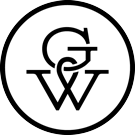
 quicksearch
quicksearch






